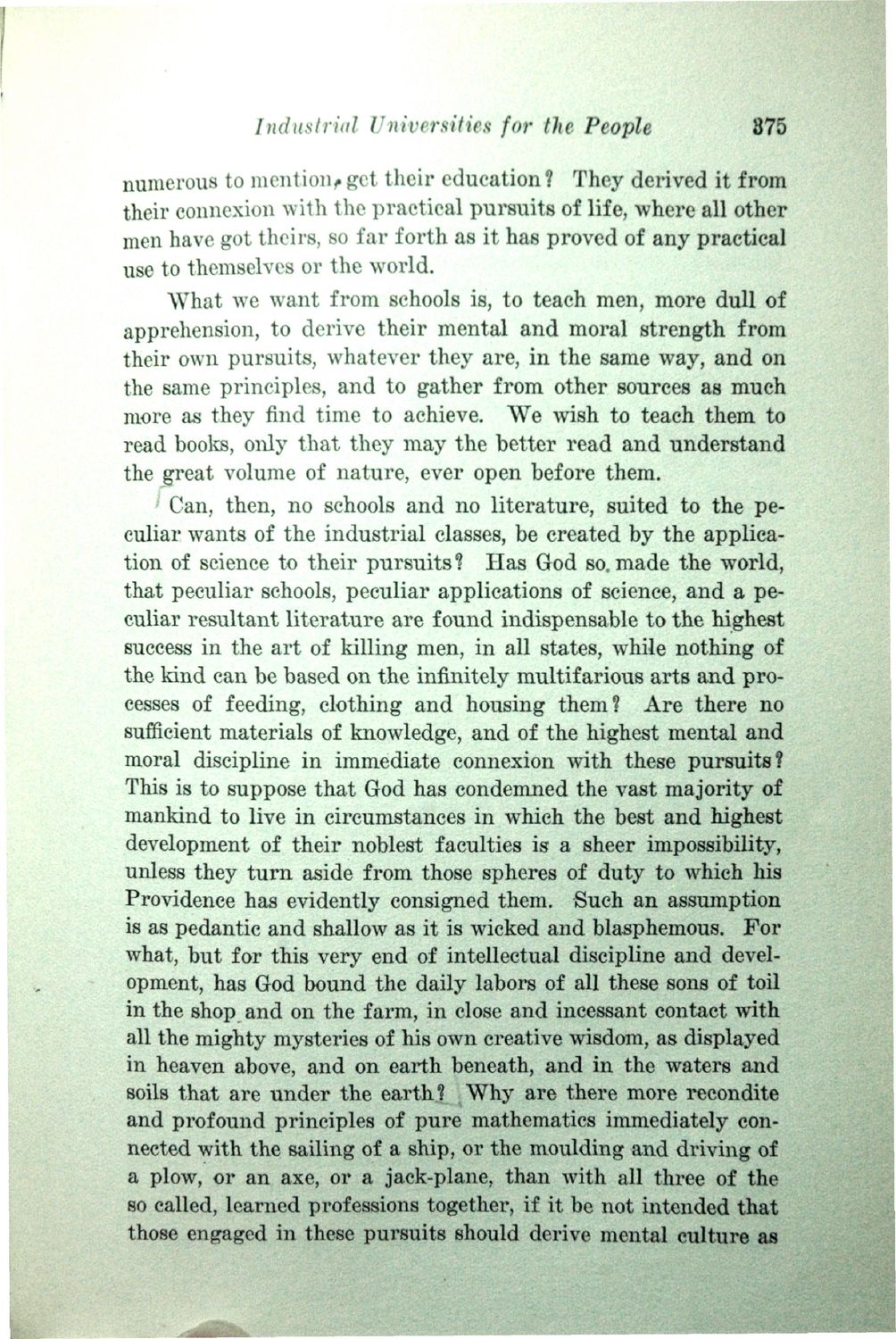| |
| |
Caption: Book - History of the University (Powell)
This is a reduced-resolution page image for fast online browsing.

EXTRACTED TEXT FROM PAGE:
Industrial Universities for the People 875 numerous to mention* get their education? They derived it from their connexion with the practical pursuits of life, where all other men have got theirs, so far forth as it has proved of any practical use to themselves or the world. What we want from schools is, to teach men, more dull of apprehension, to derive their mental and moral strength from their own pursuits, whatever they are, in the same way, and on the same principles, and to gather from other sources as much more as they find time to achieve. We wish to teach them to read books, only that they may the better read and understand the great volume of nature, ever open before them. ' Can, then, no schools and no literature, suited to the peculiar wants of the industrial classes, be created by the application of science to their pursuits? Has God so. made the world, that peculiar schools, peculiar applications of science, and a peculiar resultant literature are found indispensable to the highest success in the art of killing men, in all states, while nothing of the kind can be based on the infinitely multifarious arts and processes of feeding, clothing and housing them? Are there no sufficient materials of knowledge, and of the highest mental and moral discipline in immediate connexion with these pursuits? This is to suppose that God has condemned the vast majority of mankind to live in circumstances in which the best and highest development of their noblest faculties is a sheer impossibility, unless they turn aside from those spheres of duty to which his Providence has evidently consigned them. Such an assumption is as pedantic and shallow as it is wicked and blasphemous. For what, but for this very end of intellectual discipline and development, has God bound the daily labors of all these sons of toil in the shop and on the farm, in close and incessant contact with all the mighty mysteries of his own creative wisdom, as displayed in heaven above, and on earth beneath, and in the waters and soils that are under the earthly Why are there more recondite and profound principles of pure mathematics immediately connected with the sailing of a ship, or the moulding and driving of a plow, or an axe, or a jack-plane, than with all three of the so called, learned professions together, if it be not intended that those engaged in these pursuits should derive mental culture as •n
| |